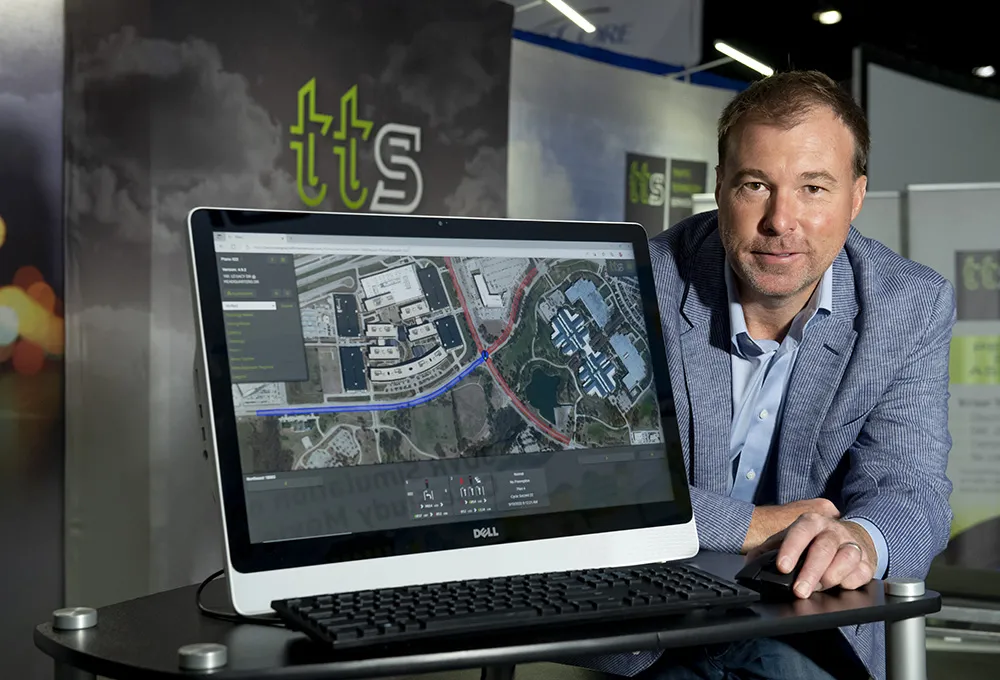The fifth and final webinar of the AERIS Fall//Winter 2012-2013 Webinar Series will take place on Wednesday, March 13, 2013 at 1:00 pm EST. The webinar will describe the results of a recent connected vehicle field experiment performed in two locations (University of California at Riverside and the Turner Fairbank Highway Research Center). Complementary modelling results will also be described. The field experiment was conducted in August 2012 and was based on the AERIS Program's Eco-Approach and Departure a
March 1, 2013
Read time: 2 mins
The fifth and final webinar of the AERIS Fall//Winter 2012-2013 Webinar Series will take place on Wednesday, March 13, 2013 at 1:00 pm EST.
The webinar will describe the results of a recent connected vehicle field experiment performed in two locations (University of California at Riverside and the Turner Fairbank Highway Research Center). Complementary modelling results will also be described.
The field experiment was conducted in August 2012 and was based on the AERIS Program's Eco-Approach and Departure at Signalised Intersections application. The field experiment included a roadside equipment (RSE) unit installed at a traffic signal broadcasting signal phase and timing (SPaT) messages using 5.9 GHz dedicated short range communication (DSRC). SPaT messages were received by the in-vehicle application and uses to provide speed recommendations to the driver that encourage green approaches to signalised intersections. Green approaches include speed recommendations that when applied allow the vehicle to traverse the signalized intersection on green or decelerating to a stop in the most environmentally efficient manner. Results were measured in terms of fuel savings and carbon-dioxide (CO2) emissions reductions.
Dr Matthew Barth, the Director of the University of California, Riverside's Center for Environmental Research and Technology (CE-CERT), who conducted the study, will lead the webinar. In addition, Dr Barth will discuss initial modeling efforts being conducted by the AERIS Program as they relate to Eco-Signal Operations.
The webinar will describe the results of a recent connected vehicle field experiment performed in two locations (University of California at Riverside and the Turner Fairbank Highway Research Center). Complementary modelling results will also be described.
The field experiment was conducted in August 2012 and was based on the AERIS Program's Eco-Approach and Departure at Signalised Intersections application. The field experiment included a roadside equipment (RSE) unit installed at a traffic signal broadcasting signal phase and timing (SPaT) messages using 5.9 GHz dedicated short range communication (DSRC). SPaT messages were received by the in-vehicle application and uses to provide speed recommendations to the driver that encourage green approaches to signalised intersections. Green approaches include speed recommendations that when applied allow the vehicle to traverse the signalized intersection on green or decelerating to a stop in the most environmentally efficient manner. Results were measured in terms of fuel savings and carbon-dioxide (CO2) emissions reductions.
Dr Matthew Barth, the Director of the University of California, Riverside's Center for Environmental Research and Technology (CE-CERT), who conducted the study, will lead the webinar. In addition, Dr Barth will discuss initial modeling efforts being conducted by the AERIS Program as they relate to Eco-Signal Operations.










